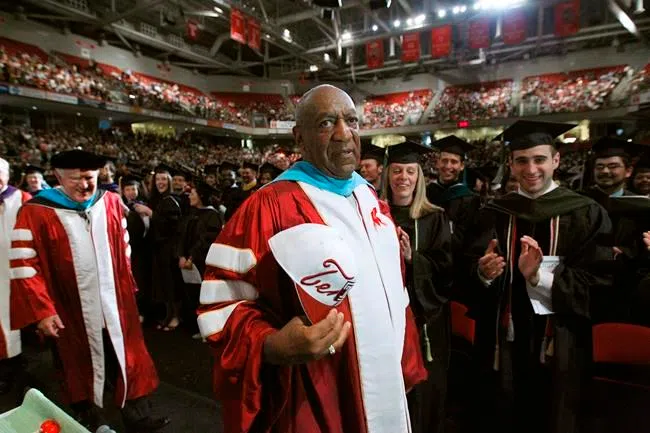
Cosby’s life of achievement stained by assault conviction
LOS ANGELES — Over and over again, Bill Cosby, the charmer, persuaded America to drop its guard.
Before Cosby and “I Spy,” no African-American man had landed the lead in a television drama series. Before Cosby and “The Cosby Show,” no affluent, educated black family existed on TV. Before Cosby, few black celebrities were hired to pitch something as mainstream as Jell-O.
It all made for an unmatched contribution to ethnic equality, a legacy seemingly invulnerable to claims spanning decades that “America’s Dad” was sexually abusing women. He denied it all and, year after year, that proved good enough.
Until it wasn’t. The collective willingness to trust in Cosby ended in a Pennsylvania courtroom Thursday. Jurors convicted the 80-year-old comedian of drugging and molesting Andrea Constand, whose 2004 experience with Cosby echoed that of so many of his accusers who emerged before last year’s #MeToo wave began.
